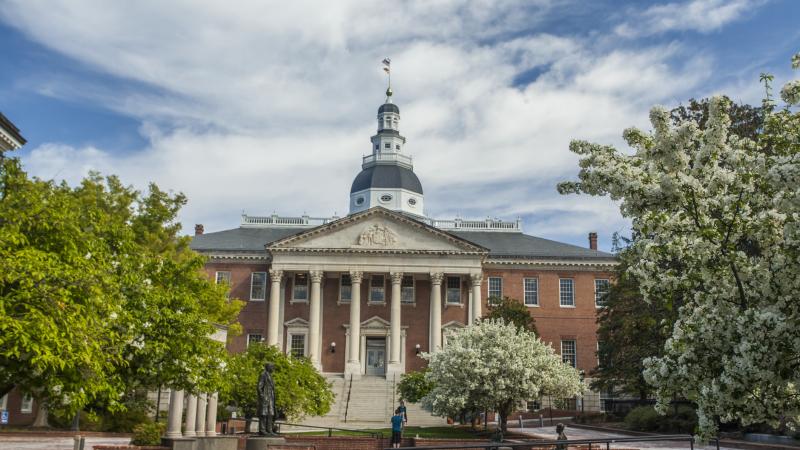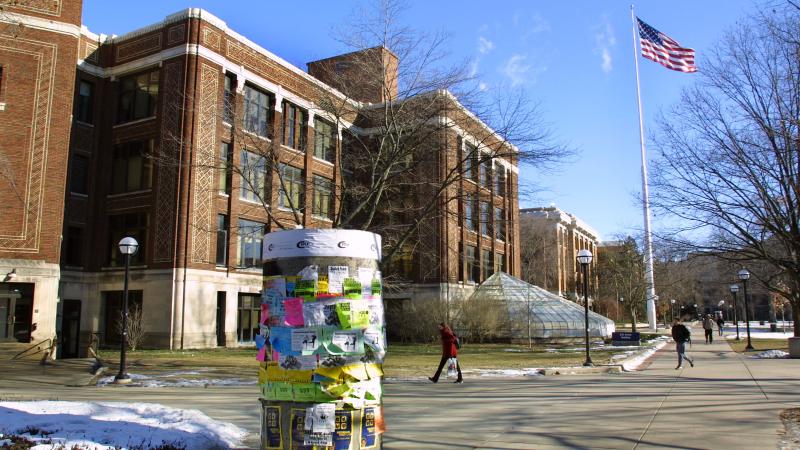North Carolina Supreme Court will take up felon voter case
Case will determine when about 56,000 felons in state regain the right to vote.
The North Carolina Supreme Court has issued an order to take up a case that will determine when about 56,000 felons regain the right to vote.
The justices granted a request to intervene in a pending appeals case centered on a 1973 law that spells out when convicted felons regain the right to vote in North Carolina.
A trial court in March issued a 2-1 split decision to overturn a 1973 law that prohibits felons from voting until their sentences are complete, including post-release probation or parole. The case stems from a 2019 lawsuit filed by the Raleigh-based Community Success Initiative, which claims the law violates the state constitution and was crafted with a racist intent.
The trial court sided with the plaintiffs and ordered "if a person otherwise eligible to vote is not in jail or prison for a felony conviction, they may lawfully register and vote in North Carolina."
Republican lawmakers defending the law appealed the case to the North Carolina Court of Appeals. A three-judge panel with the appeals court split 2-1 in an April ruling that felons would not be allowed to register or vote in the May 17 primary or July 25 elections, but lifted the restriction for the November election as the case progressed through appeal.
State legislative leaders requested an "en banc" hearing from the full 15-member Court of Appeals to reconsider the decision, while the plaintiffs requested the state Supreme Court intervene.
The trial court decision was rendered by a Democrat and unaffiliated judge, with a Republican judge in dissent. The appeals court panel consisted of two Democrat judges who overruled a Republican colleague. The full Court of Appeals consists of 10 Republicans and five Democrats. The state Supreme Court is comprised of four Democrats and three Republicans.
The Friday Supreme Court order, signed by Democrat Justice Anita Earls, grants the plaintiff’s motion to move the case out of the appeals court, but dismissed as moot requests to suspend the normal rules of procedure to expedite the case and to allow felons to vote in the primary.
"Briefs of the respective parties shall be submitted to this court within the times allowed and in the manner provided by Appellate Rule 15(g)(1)," Earls wrote.
Lawyers for legislative Republicans argue the trial court ruling in the case ignored a provision in the state constitution that states felons cannot vote in state elections until they are "first restored to the rights of citizenship in the manner prescribed by law." Because the trial court struck down the law, there’s now no "manner prescribed by law" that allows felons to vote, they argue.
The Carolina Journal notes Appeals Court Judge Jefferson Griffin pointed to that reality when he dissented last month.
"The framers of our State Constitution, and the people of this State, established … that convicted felons would not be treated the same as similarly situated, law-abiding citizens and would not be entitled to [the] same right to vote in free elections," Griffin wrote. "Instead, convicted felons would not have the right to vote unless their voting rights are restored ‘in the manner prescribed by law.’"
Griffin also referenced the "high risk of irreparable harm" from allowing felons to vote before the case is resolved.
"If convicted felons are permitted to vote in the November election and Petitioners subsequently prevail on the merits of their appeal, untold thousands of lawful votes cast by North Carolina citizens likely will be diluted by votes cast by convicted felons in violation of our State Constitution," Griffin wrote.
The state Supreme Court is expected to hear the case later this year, according to the Carolina Journal.













